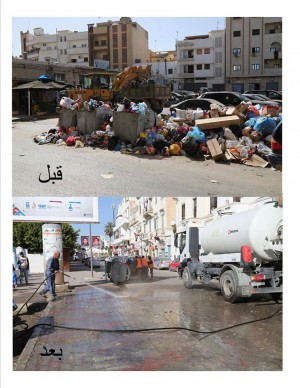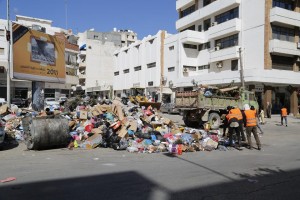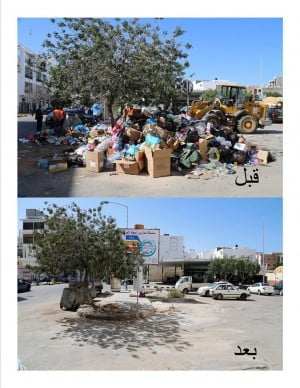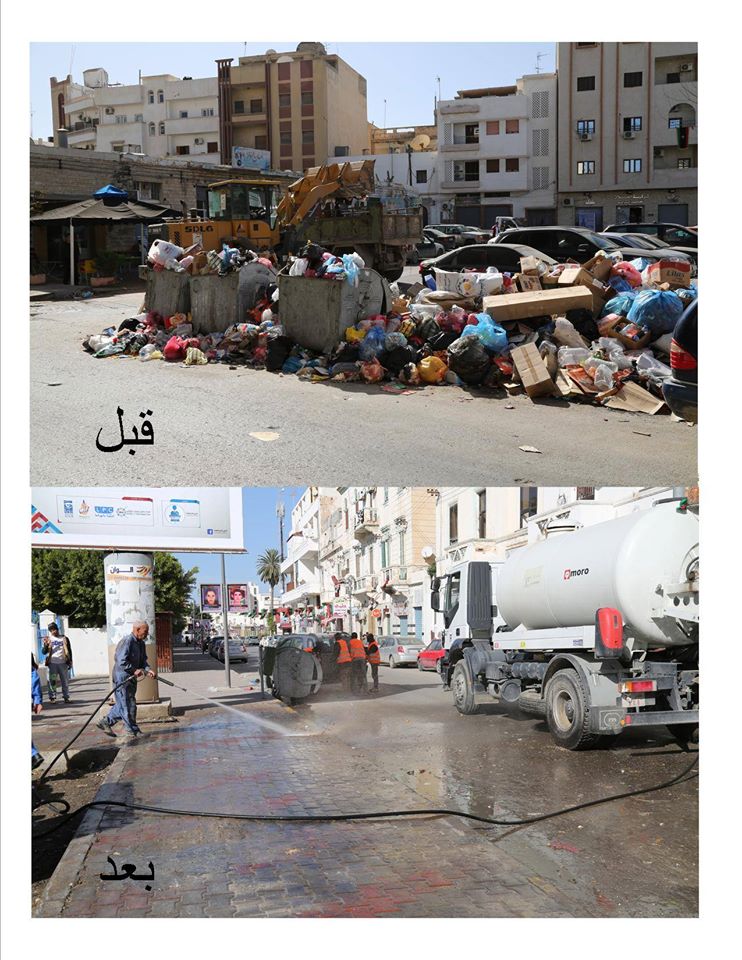By Sami Zaptia.

London, 29 February 2016:
The Municipality of Central Tripoli has today refuted suggestions that it has made its local residents . . .[restrict]or shopkeepers pay for the clean-up drive it recently launched. It blamed the failure to clean up its streets on the lack of funding from the central state.
On Saturday (27th February) the Municipality announced that it was opening registration for local privately-owned companies wishing to put themselves forward for rubbish collection contracts.
The announcement is seen as an admission by the Municipality that it is unlikely to receive any central state funding from the government soon. But it is also an acceptance that the piles of rubbish were getting out of hand with the onset of summer.
The Municipality has been forced in the last week to launch a major clean-up drive of Tripoli’s downtown streets which had become piled up with uncollected rubbish, abandoned cars and building rubble. The rubbish had become so bad it was beginning to giving off a stench in the early spring temperatures and heat of Tripoli.

Residents were complaining and fearful for their health as rodents, cats and stray dogs were seen feeding off the mountains of rubbish on the corners of Tripoli’s main streets. Some piles of rubbish were being burnt off by locals causing plumes of smoke.
The problem is caused by the four month unpaid salaries of the council workers who do the street rubbish collecting as well as council employees working at the central landfill site out in Sidi Sayah.
Libya Herald has been aware of the problems of the Sidi Sayah landfill site since the 2011 revolution. It has been closed on and off with locals objecting to rubbish being dumped there and their attempts to extract compensation from the state.
It was thought that an agreement had been reached with the locals by the various transitional authorities since 2011, but it is not clear if these agreements will be honoured by locals.

Over the years since the revolution, plans to outsource rubbish collection and recycling to either local or international companies have been muted. Libya Herald is aware that projects had been put forward to Tripoli’s various councils since 2011. However, nothing concrete has ever been done.
It was thought that councils felt that any signed contracts would not be binding during Libya’s political transitional phase.
In January 2015, the then only internationally recognized government of Abdullah Thinni announced in Beida a decree at its cabinet meeting allowing international companies to be contracted to collect and recycle Libya’s rubbish.
It will be recalled that the very central rubbish dumping and collection site in Abu Sleem had been shut down in 2013 as it was located smack in the centre of a residential area which had mushroomed around the dump site since it had been established a few decades earlier. Consequently, most rubbish now has to be trucked directly to Sidi Sayah, about 30 km south of Tripoli.
The failure by the central state to provide the Municipality with its budget is as a result of Libya’s economic crises caused by political and military division, a fall in oil production and export as well as the crash in international crude oil prices. [/restrict]







